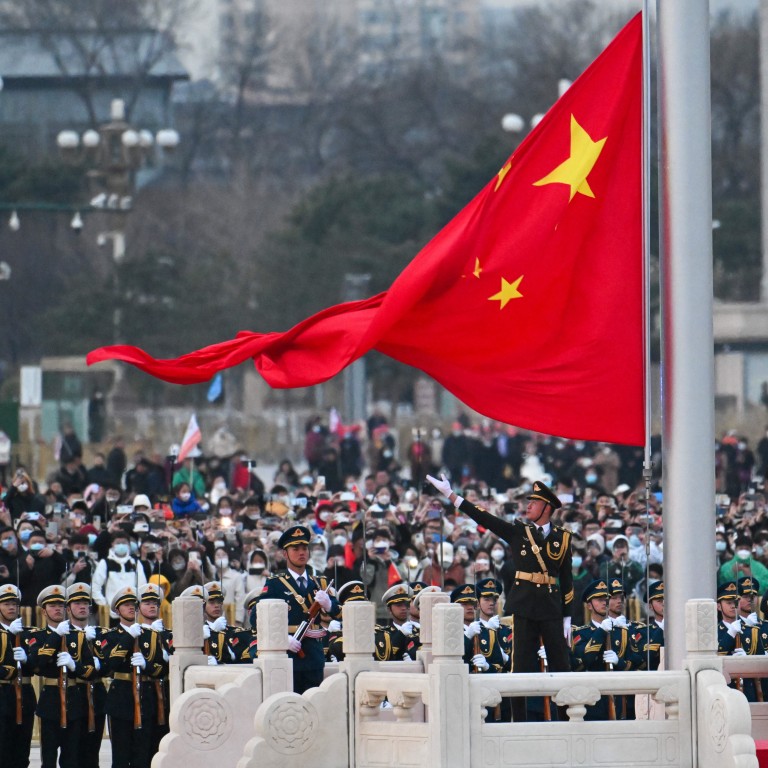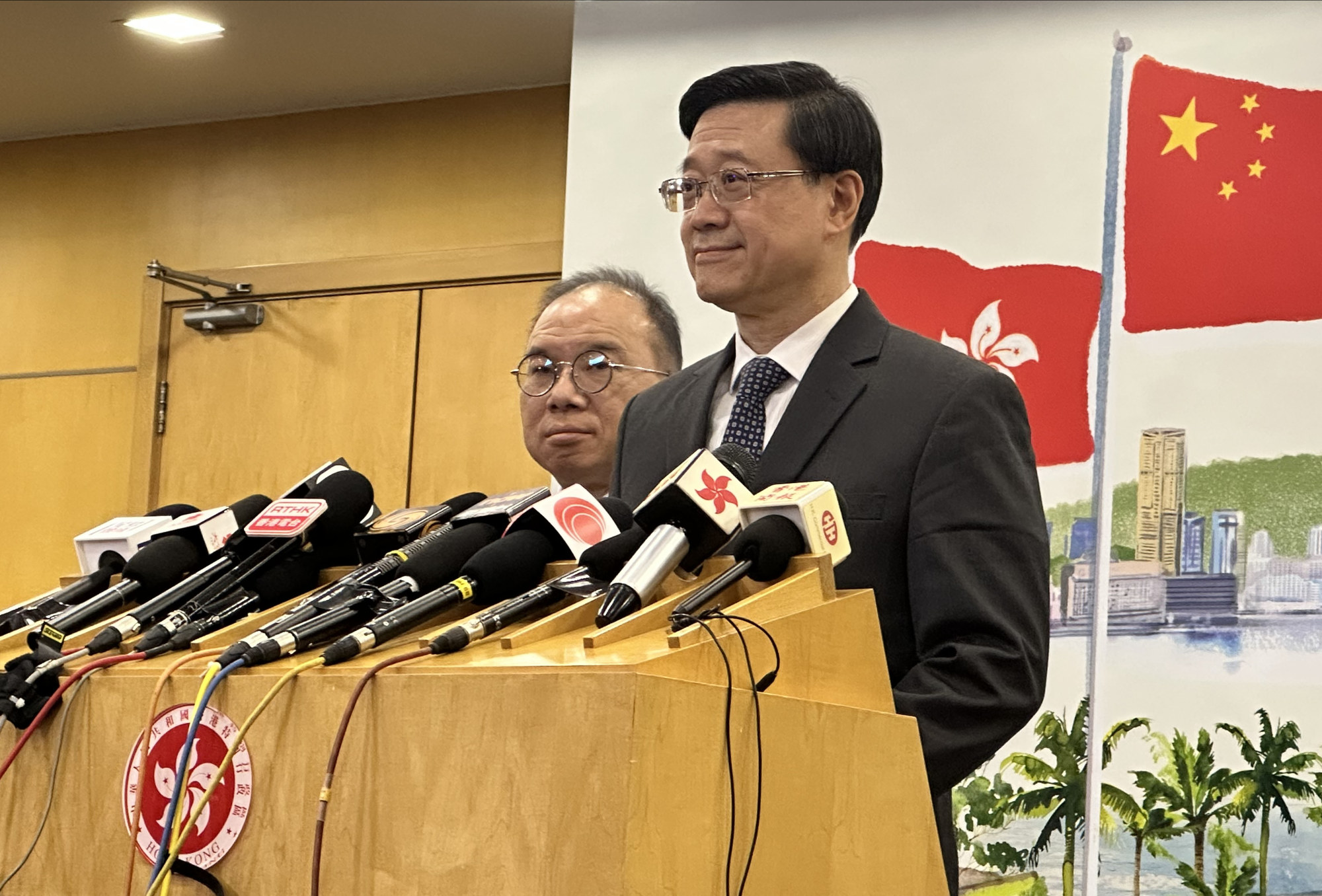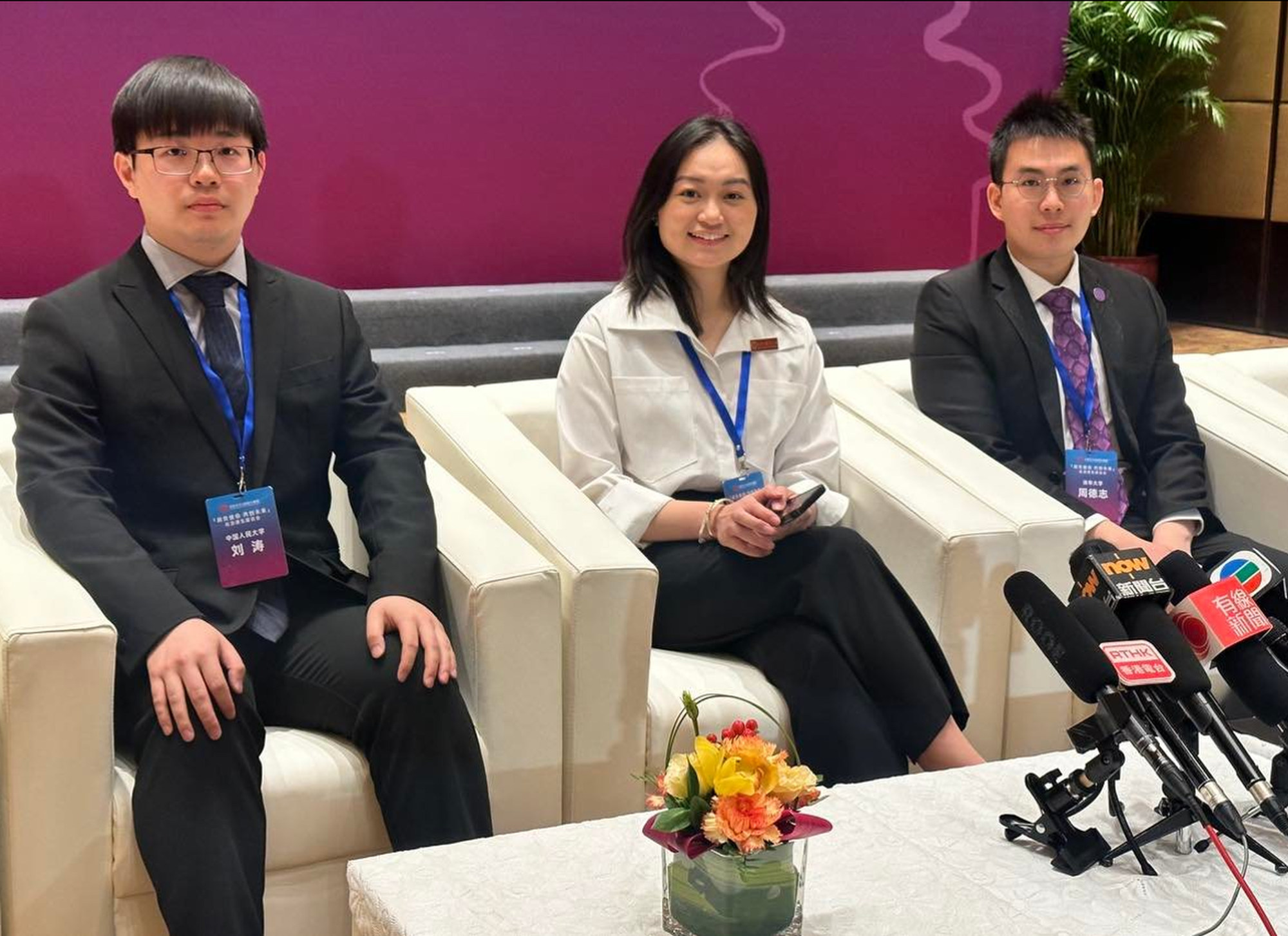
Beijing’s overhaul of its top Hong Kong affairs office will lead to more effective policy work, city leader John Lee says, insists ‘high degree of autonomy’ won’t be undermined
- Central government’s comprehensive jurisdiction over city goes hand in hand with the ‘high degree of autonomy’, chief executive says
- Hong Kong also to consider expanding talent scheme to allow graduates from more top mainland universities to work locally
An overhaul by Beijing that places its top office overseeing Hong Kong affairs under the direct scrutiny of the Communist Party will lead to “more effective implementation of policies”, the city’s leader has said, insisting the move will not undermine the financial hub’s promised high degree of autonomy.
Lee held the only press briefing of his week-long trip to the capital a day after the shake-up involving the Hong Kong and Macau Affairs Office (HKMAO) was announced. It will now report to the ruling party’s top decision-making Central Committee rather than the State Council.

“Strengthening [the party’s] leadership will lead to more effective implementation of policies as supervision is one of the duties [of the reformed office], resulting in the more successful practice of ‘one country, two systems’,” Lee said.
“More effective and swift communications with ministries will also be part of the results.”
Lee spent the week visiting 11 ministries and institutions in the capital, with his last stop expected to be the Ministry of Justice on Saturday morning before his return to Hong Kong.
Beijing’s top office on Hong Kong affairs gets revamp, will report to party chiefs
He shrugged off suggestions that the de facto elevation of the body, which would now report to the party’s core group under the leadership of President Xi Jinping as general secretary, could affect people’s perceptions about the “high degree of autonomy” promised to the city, stressing the guiding principle “originated from the central government’s comprehensive jurisdiction”.
Lee added: “Therefore, comprehensive jurisdiction, highlighted in speeches by state leaders, goes hand in hand with the ‘high degree of autonomy’. The formation of the office will only enhance the compatibility [of the two principles].”
Under the revamp, the new overarching body will be called the “Hong Kong and Macau Work Office of the Communist Party Central Committee” and be responsible for “investigating, researching, coordinating and supervising” the comprehensive jurisdiction of the central government, and governance of both cities, among other duties.
China’s foreign ministry to ‘safeguard national sovereignty’ in guiding Hong Kong
Lee declined to confirm whether Xia Baolong, director of the present HKMAO, would stay on as the head of the new body, saying he had met him two weeks ago and “kept up exchanges” with officials of the office during the trip.
He said his delegation, which comprised eight bureau chiefs, felt “encouraged” by the warm reception received from mainland ministers and he noted that they all had agreed to offer policy support on the city’s further integration into the national development plan.

Asked about progress on work related to national security, Lee, who formerly headed the Security Bureau, said the government was reviewing relevant legislation in other common law jurisdictions to draft a bill under Article 23 of the Basic Law, the city’s mini-constitution, that could cope with “future risks amid the complicated geopolitical situation”.
“Hidden risks still exist that could undermine national security, as foreign forces still hope to interfere with Hong Kong’s affairs. Hong Kong should stay vigilant as an international city,” he said.
China’s foreign ministry to ‘safeguard national sovereignty’ in guiding Hong Kong
Earlier in the day, Lee announced that his administration would renew the “Top Talent Pass Scheme” sooner than planned. The scheme offers a two-year visa to successful applicants with a bachelor’s degree from the world’s top 100 universities.
“Based on the popular reactions we received in less than three months, I have already directed the relevant departments to conduct a midyear review. We will actively consider adding more elite universities to the list,” he told a group of Hong Kong students studying in Beijing at a seminar.
“I believe more key mainland educational institutions will be considered.”
Nine institutions from the mainland, including Tsinghua University, Peking University and Fudan University, are on the current list of 100, compiled by the Labour and Welfare Bureau after considering four relevant world rankings.
Other overseas universities on the list are from Britain, the United States and 24 countries and regions. Applicants do not have to secure a job before arriving in the city.
Hong Kong gets China’s backing to join more national projects, pursue global talent
When Lee unveiled the scheme in his maiden policy address last October amid a brain drain following more than two years of stringent Covid-19 travel restrictions, he said it would be reviewed after one year of implementation.
The scheme sparked controversy last month after mainland biophysicist He Jiankui, who was involved in genetically edited babies and was jailed in China for violating medical regulations, had his application approved.
His visa was later revoked and authorities adjusted the scheme to require all applicants to declare their criminal records.

As of the end of last month, the government received more than 14,000 applications and approved over 9,600, with more than half of the applicants aged below 30.
The Friday event, hosted by Hong Kong Alumni Association of Beijing Universities, was attended by 21 students and officials from the United Front Work Department and Beijing’s liaison office in Hong Kong.
Tightened rules for Hong Kong talent visa schemes after Chinese biophysicist saga
Among the seminar’s attendees was Lau To, a doctoral student in international relations at Renmin University in Beijing.
He said he hoped more hurdles could be removed for graduates from Hong Kong looking to work on the mainland, noting they could not apply for government jobs in the capital and were usually not preferred by some small private firms that were reluctant to deal with different taxation arrangements.
“Our choices on the mainland are more limited than those for local graduates … I may consider joining the Hong Kong government after graduation,” the 27-year-old said.
Chow Dezhi, 28, who has conducted research at Tsinghua University on the bioprinting of cells, said he would pursue further studies in the United States as it was where the technology was pioneered. He said he would then return to the mainland or Hong Kong to contribute to the industry’s development.
Lee also met People’s Bank of China governor Yi Gang and Yi Huiman, chairman of the China Securities Regulatory Commission. Both pledged their support for Hong Kong to utilise its strengths as an international financial hub and said they would further work with the city government on policy executions.
Earlier in the morning, Lee also viewed the flag-raising ceremony at Tiananmen Square with his delegation, his first as Hong Kong’s leader. He later wrote on Facebook that he felt “very excited to see the fluttering national flag”.

